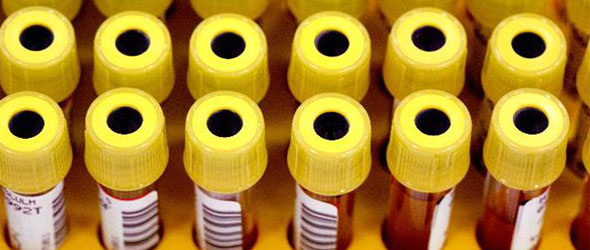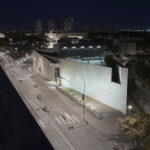Adults living in Vancouver or Prince George, B.C., who have had sex likely will be asked to take an HIV detection test at the next lab, hospital or medical clinic they visit under Canada’s first such pilot project.
They can refuse the offer but won’t be able to avoid the HIV testing guerrilla marketing campaign delivered via social media, bus shelters and websites. The “seek and treat” program is meant to identify up to 3,500 more cases of HIV in B.C.
That’s the number of adults estimated to be infected who don’t know it, since symptoms of HIV can be silent for as many as 10 years, according to public health authorities.
Under a four-year, $48-million program funded by the provincial government, family doctors are being urged to add HIV testing for all their adult patients being sent for other types of blood tests.
Many patients recently admitted and/or treated at St. Paul’s, Mount St. Joseph and Vancouver General Hospital have been offered the tests as well. University of British Columbia Hospital patients will be included next year.
Intensive-care, palliative and psychiatric patients will not be included in the screening program.
Lab tests cost up to about $300. The initial test, if it is negative, costs between $10 and $25. If the initial screening test is positive, more tests are done to confirm the diagnosis.
Lab tests conducted as part of routine blood work are cheaper, which is why doctors are being urged to add the HIV screening tests when ordering other tests.
The program is purposely casting a wide net as it seeks those who are outside the usual HIV risk group scope, said Dr. Reka Gustafson, medical health officer, communicable disease control, for Vancouver Coastal Health.
“No question about it, this is a big practice change. In the past, we have targeted people in high-risk groups (like men who have sex with men) but now we need to go beyond that and offer tests to anyone who has ever had sex. It will not only reduce the stigma of such testing but it will also improve our early detection rates,” she said.
Even before the program ramp-up this week, hospitals and doctors were ordering more HIV tests, resulting in more cases being detected. In the months of June, July and August last year, 45 cases of HIV were detected in Vancouver but in the same months this year, there were 78.
About 200,000 HIV tests are conducted annually in B.C. and such blood tests have detected nearly 14,000 cases of individuals now living with HIV. Last year, there were 301 new HIV cases in B.C; three of every 1,000 tests results in an HIV diagnosis.
British research has demonstrated a cost benefit when the prevalence of diagnosis is one or two out of every 1,000 tests.
“We expect our diagnostic yield be higher than that,” Gustafson said.





















